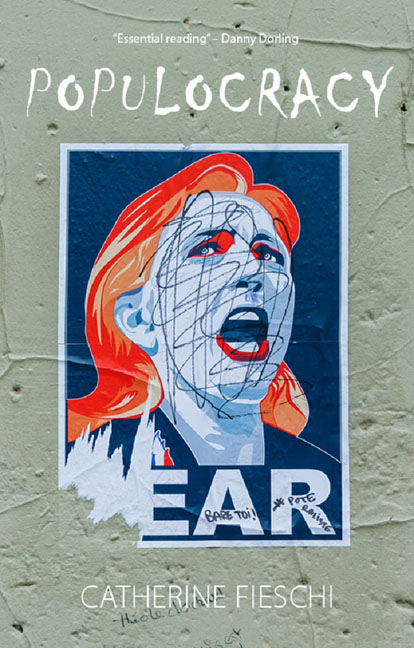Book contents
- Frontmatter
- Contents
- Dedication
- Acknowledgements
- Introduction
- 1 What is it about populism?
- 2 The ideas that matter, or populism as jiu-jitsu politics
- 3 The prototype: France
- 4 Populism goes global: the Netherlands
- 5 Populism’s poster child? Italy
- 6 The UK and the absolute populist fantasy: taking back control
- 7 Populism and the new political subject
- Conclusion: jiu-jitsu politics
- References
- Index
4 - Populism goes global: the Netherlands
Published online by Cambridge University Press: 16 August 2023
- Frontmatter
- Contents
- Dedication
- Acknowledgements
- Introduction
- 1 What is it about populism?
- 2 The ideas that matter, or populism as jiu-jitsu politics
- 3 The prototype: France
- 4 Populism goes global: the Netherlands
- 5 Populism’s poster child? Italy
- 6 The UK and the absolute populist fantasy: taking back control
- 7 Populism and the new political subject
- Conclusion: jiu-jitsu politics
- References
- Index
Summary
When I first started paying attention to Dutch politics it was out of a fascination for its capacity to hold itself together despite deep divisions in society. Indeed, the political story of Dutch society is one of institution-building in the face of the constant threat of fragmentation. Much as the low countries had been physically under threat from the sea and built the devices to protect themselves from rising sea-levels, so were they once in danger of disintegration from religious divisions and developed the institutional pillars to defend and define themselves against the forces that could undermine their unity.
My interest was in the nature of these pillars: how they had emerged and managed to structure a peaceful, well-organized coexistence (despite religious differences) and a form of politics defined by negotiation, compromise and elite governance. The system fragmented in the late 1960s and early 1970s and splintered into many more parties, but the continuation of a political culture based on tolerance, openness and compromise seemed ensured.
The Netherlands offered a paradox for sociologists and political analysts: it was a place where there should have been chaos, but where in fact nothing much happened for a very long time (the quip by the nineteenth-century German intellectual Heinrich Heine was that when something did happen, it was 50 years after it had happened anywhere else in the world); and then, in the mid-twentieth century, the Netherlands became a place where almost everything “happened” before it did anywhere else – drug decriminalization, euthanasia, the regulation of prostitution and relaxed attitudes towards diversity of all types. It looked as though even once the old system of pillarized, orderly politics organized around strong, clear (religiously defined) parties had crumbled, the shadow of a form of bourgeois complacency lingered long enough to make the Dutch untroubled with many other aspects of diversity. Bourgeois satisfaction and elite prudence seemed to have seamlessly mutated into Boho acceptance.
So, the early 2000s came as a bit of a shock: in quick succession Pim Fortuyn (an openly gay, anti-Islam, right-wing politician) rose to prominence using a language that broke with Dutch tolerance and compromise.
- Type
- Chapter
- Information
- PopulocracyThe Tyranny of Authenticity and the Rise of Populism, pp. 73 - 88Publisher: Agenda PublishingPrint publication year: 2019



